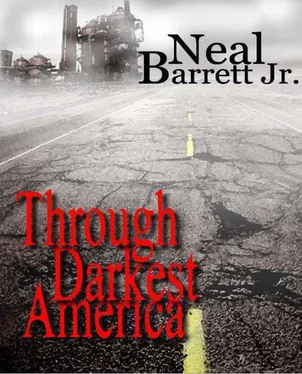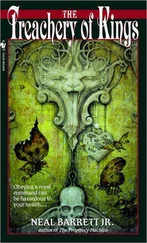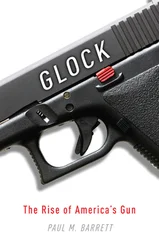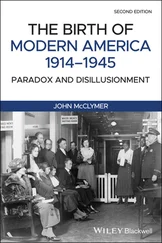He told a little about how we’d been a long time paying for the sins of generations past, who’d near sent the world up in flames. That it was a long road back and we were getting there. He reminded them that there were a lot of countries that were worse off than we were—or weren’t even around anymore, for that matter.
There was more. And finally he stopped and the clown in the baggy patchwork suit and lopsided hat came stumbling into the tent. One of the troopers brought out his fiddle so the clown could dance and soon he was twirling about the circle smiling and making faces.
There were children of all sizes in the tent, but each was between nine and fifteen—the limits for being eligible to go to Silver Island. It was the first year Howie hadn’t had to sit in the circle and he had mixed feelings about that. It gave him a sense of pride to stand with the grownups. On the other hand, he’d never have a chance, now, to see what Silver Island was like. He thought of the warm sun, the blue water, and the girl on the beach with next to nothing on. There were probably a lot of girls around just as pretty though he hadn’t seen any. And they sure weren’t dressed like that….
The fiddler played, the clown danced about and laughed, and the grownups and children alike followed him with their eyes. Sometimes he’d pause for a moment before one child or another, then he’d waddle off somewhere else.
The fiddler began to play faster and faster, stomping his foot on the hard ground. The clown whirled and leaped about like he’d never stop. You could see the sweat roll off his painted face in different colors. His hat flew off his head and his big mouth opened to gulp air. Finally, he gave an extra high leap, rolled himself in a tight little ball, and flipped over neatly in midair. When his feet hit the ground, a handful of long, silver ribbons was clutched in his hand.
There were a few gasps from the crowd, for they knew what was coming now. Howie saw his mother’s hand squeeze Papa’s arm until there was nothing but white in her fingers.
The fiddler began a slower, prettier tune. The clown pranced daintily about the circle again, stopping first before one child, and then another. And each time he stopped, he pinned one of the long silver ribbons to the child he’d chosen. He danced until all the ribbons were gone, threw a big kiss to children and grownups alike, and bowed his way out of the tent.
Out of some forty children present, eighteen had been chosen. More than any from Corners in a single year, someone said. Carolee was the fourth child to be picked.
Spring came early, after a winter that was more like a cold, bleak autumn than anything else. An old hand who worked for Howie’s father said Nature had a way of evening things out and was kind of making up for the bitter season of the year before, which was like two or three winters all bunched together.
For Howie, it meant you had to get outdoors and work when you ordinarily wouldn’t. Clear days when there was only a little snow in the air were extra blessings as far as Papa was concerned—days when you could get a head start on spring.
In a way, Howie didn’t mind. The things that used to be fun in winter didn’t matter now. All his life, cold weather had meant extra good smells in the kitchen, hot fruit pies on special days—and at night, huddling about the big fireplace while the chill wind howled outside. There’d be cider, then, spiced with herbs, and the whole family laughing and telling stories about one thing or another.
Only it wasn’t the same anymore. Since Carolee had been Chosen, the laughter had gone out of his mother. Her eyes didn’t smile—they seemed to be looking at something far away; and the special things she used to do weren’t so important.
Howie missed Carolee, too. She didn’t seem so much like a wart, now, and he mostly remembered good things. He thought about her often, having fun on Silver Island, and wondered if she knew the girl who had lain on the beach near naked. Probably she did. There were a lot of people there, but you’d get around to meeting everyone after a while.
The girl had been on his mind a lot since he’d seen her picture at Corners. At night, with the silence outside, he saw her just as she’d been, only she didn’t have anything at all on now. Sometimes he imagined touching her all over, and rubbing up against her—doing things that made him sweat and kick the covers aside, even with the chill outside. Then he’d have to stop the pain that filled his loins, though he didn’t like to do that often. Stock did it all the time, he knew—bucks and mares alike—but people weren’t supposed to. It didn’t much matter what animals did; they didn’t have a lot in their heads to begin with. But it wasn’t supposed to be good for people.
It was funny, he thought. How you saw things different. He could look at the girl on the beach and think about pulling off the little bit of clothes she had and doing all kinds of things to her. Once, though, it occurred to him that Carolee probably went swimming at that very same place, now. Was she wearing clothes like that? The idea horrified him. He wondered if the girl on the beach had a brother. Maybe he’d look at Carolee the same way. Would that be wrong, if he did? Did that make him, Howie, wrong? It was enough to make a person’s head ache—figuring out what was good and what wasn’t.
With the early thaw, news of the war came sooner than most people had expected. The mild winter had been good and bad for both sides, they said. It had let the army move against the rebels sooner, but it had also given Lathan a chance to broaden his holdings over good ground, since the earth wasn’t churned to mud this spring like it usually was. There was one thing certain, people said, there’d been plenty of chances for fighting and there were a lot of dead and wounded in both armies.
One day a traveler from Bluevale stopped for supper and told Papa there was trouble in town with the army, and likely to be more. After the terrible battles out west, many troopers had been sent back to rest up and lick their wounds.
“They’re hungry and most of ’em hurt,” the man said. “They got no will to fight Lathan anymore, but there’s plenty of mean in them still.”
And mean, he told them, meant brawling and burning, and a rape or two thrown in. It wasn’t so bad in the countryside, yet—but it would be, soon as the towns got too tough on the troopers.
There was other news, too, that set Papa’s jaw and turned his face beet red.
“A War Tax, or that’s what they’re callin’ it,” he grumbled. “You’re old enough to know what’s happening in the country and take some note of it,” he told Howie.
The traveler had gone his way and Papa sat with his big fists in his chin before the fire. There was still a chill in the air and wood coals glowed on the hearth.
“Thing is,” Papa explained, “it’s not what you call something that makes it what it is. You can pin a name on a nettle and call it a daisy, but that don’t make it one An’ you can call this tax business what you like—it’s the government getting too big for its britches is what it is.”
He told Howie that the troopers were going to have to have more food to keep fighting Lathan through spring, because the rebels had stripped the land out west and left nothing but stubble on the ground.
“And we have to give it to ’em?” Howie wanted to know.
“Appears that way for now.”
“Is it a lot? A lot of food?” Howie had visions of soldiers carrying off everything on the farm, leaving them with nothing at all to eat.
“It’s enough,” Papa muttered. “ Enough . And do we have to?” He scratched his beard and looked at Howie. “That’s a yes and a no, boy, is what it is. Something that ain’t been clear settled. Might be the government’ll find they bit off more’n they can swallow ’fore it’s over.”
Читать дальше












